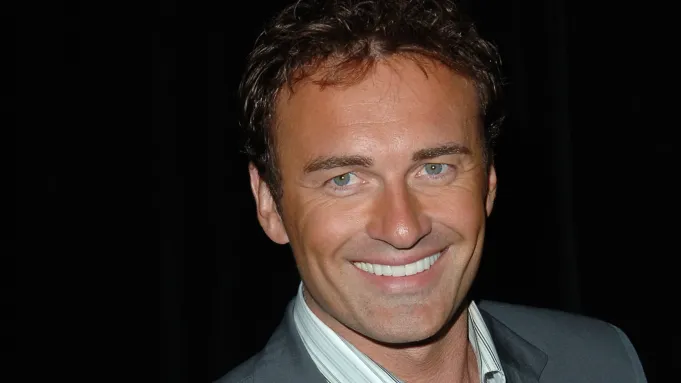Julian McMahon, the charismatic Australian actor known for roles in Nip/Tuck, Charmed, and Fantastic Four, passed away on July 2, 2025, after what his family described as a “private battle with cancer.” While the specific type of cancer has not been disclosed, the announcement stirred a global wave of sympathy and admiration for a man who chose to endure one of life’s most difficult challenges away from the public eye.
As a medical oncologist, I am often asked why some patients, especially public figures, keep their diagnoses private. In Julian’s case, his silence was not an act of denial but rather a powerful statement of control, dignity, and personal agency. This article analyzes his journey through the lens of medical ethics, patient psychology, and public health communication.
The Right to Privacy in the Face of Illness
One of the most fundamental principles in medicine is the right to patient confidentiality. Whether someone is a celebrity or an ordinary citizen, their health information is protected and should never be disclosed without their consent. Julian McMahon exercised that right fully, choosing to focus on his family, his inner circle, and perhaps his healing journey, rather than addressing public speculation.
From a medical standpoint, this decision is not unusual. Many patients opt for discretion in the early or even advanced stages of disease. Cancer can often trigger a cascade of unsolicited advice, misinformed opinions, and pity — all of which can be emotionally exhausting. By remaining silent, Julian may have been preserving his mental strength and emotional bandwidth to fight his illness with clarity and peace.
Psychological Impact of a Cancer Diagnosis
Cancer is not only a biological disease but also an emotional and psychological burden. Patients often describe feelings of fear, vulnerability, uncertainty, and sometimes shame. For public figures like Julian McMahon, those feelings can be amplified under the harsh glare of public attention.
Psychologically, the need for control is a dominant theme in how individuals respond to a cancer diagnosis. Some find strength in public advocacy, while others, like Julian, find it in quiet reflection and privacy. Neither approach is more valid than the other. What matters is that the patient feels safe, heard, and empowered to choose the terms of their journey.
The Clinical Unknowns: Why the Type of Cancer Matters
Although the family has not revealed the specific cancer involved, the way the disease unfolded can offer clues. McMahon continued acting in high-profile roles until shortly before his death. This suggests that his cancer, though ultimately terminal, may have been indolent in its early stages or well-controlled for a time through treatment.
Certain cancers such as prostate cancer, multiple myeloma, or even some forms of lymphoma can remain stable with treatment for several years. Others, like pancreatic or bile duct cancer, are often diagnosed late and progress rapidly. As clinicians, we are trained to identify these patterns not to speculate but to better manage expectations and treatments.
Julian’s ability to work, travel, and appear in public while undergoing treatment speaks volumes about the progress of modern oncology. It reflects how cancer, in many cases, has shifted from an acute fatal diagnosis to a chronic, managed disease.
Treatment Options for Advanced Cancer
For someone like Julian, who had access to advanced healthcare, his treatment likely included a combination of targeted therapy, immunotherapy, or chemotherapy. In the past decade, precision medicine has revolutionized cancer care. Instead of relying solely on traditional chemotherapy, oncologists now use molecular profiling to match patients with therapies based on the genetic makeup of their tumors.
Palliative care, too, plays an essential role in the later stages of cancer. It is not about giving up, but about enhancing quality of life. It manages pain, emotional distress, nausea, fatigue, and other symptoms so that patients can continue to engage in meaningful activities — such as Julian’s continued acting and time with loved ones.
Lessons for the Public and the Medical Community
Julian McMahon’s journey reminds us of several important truths.
First, privacy is a right that must be respected in all clinical scenarios. The absence of public announcements does not mean an absence of courage. Second, not every battle needs to be fought on the frontlines of social media. Some are more powerful when fought in silence, with dignity and grace. Third, the presence of a terminal diagnosis does not erase one’s ability to live, create, and inspire. Julian’s continued work even during his illness shows that life does not end with a diagnosis.
For the medical community, this moment is an opportunity to advocate for more nuanced public conversations about cancer. We must reinforce that cancer is not a singular disease but a spectrum, and outcomes vary widely based on early detection, biology, and access to care. We must also create safe spaces for patients to decide how they wish to live out their diagnosis, whether loudly or quietly.
Final Thoughts
Julian McMahon’s legacy will not be defined by the disease that took his life but by the life he led in spite of it. As a doctor, I see his private journey not as a retreat but as an act of strength. He faced cancer on his own terms, supported by loved ones, and free from the chaos of public expectation. That is a kind of healing in itself.
His story should serve not just as a moment of reflection, but as a reminder of the humanity behind every diagnosis — and the power of dignity, even in silence.

